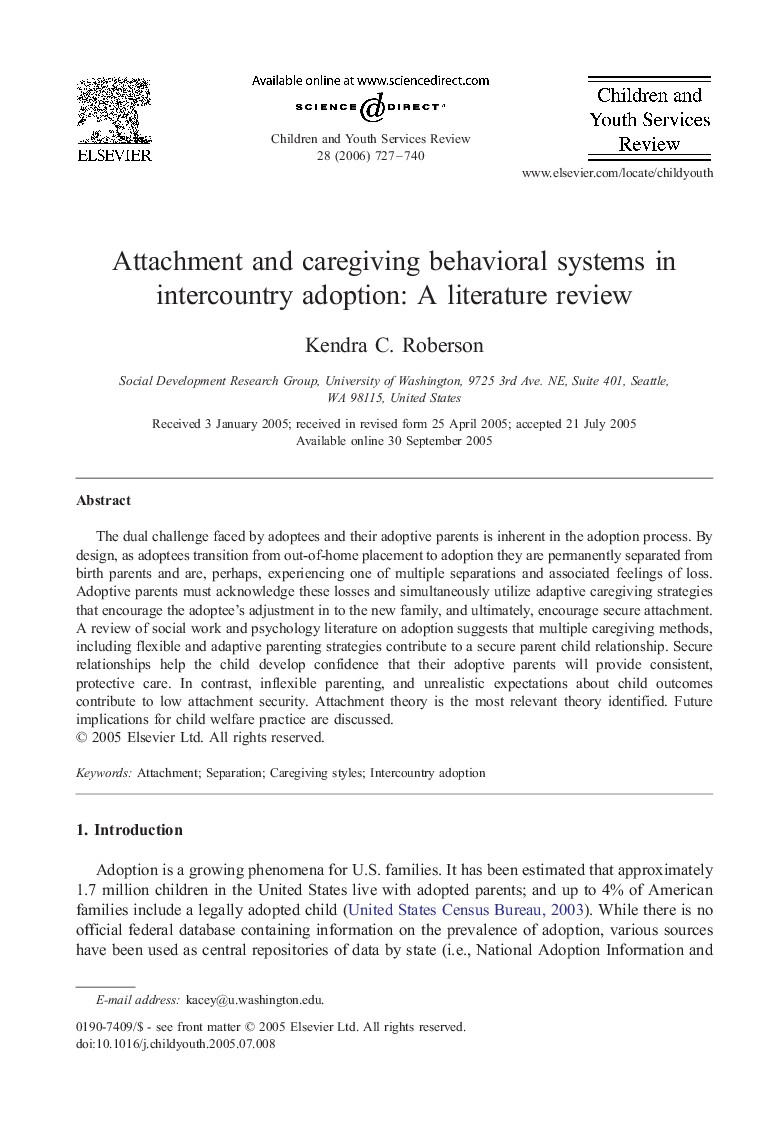| Article ID | Journal | Published Year | Pages | File Type |
|---|---|---|---|---|
| 347642 | Children and Youth Services Review | 2006 | 14 Pages |
The dual challenge faced by adoptees and their adoptive parents is inherent in the adoption process. By design, as adoptees transition from out-of-home placement to adoption they are permanently separated from birth parents and are, perhaps, experiencing one of multiple separations and associated feelings of loss. Adoptive parents must acknowledge these losses and simultaneously utilize adaptive caregiving strategies that encourage the adoptee's adjustment in to the new family, and ultimately, encourage secure attachment. A review of social work and psychology literature on adoption suggests that multiple caregiving methods, including flexible and adaptive parenting strategies contribute to a secure parent child relationship. Secure relationships help the child develop confidence that their adoptive parents will provide consistent, protective care. In contrast, inflexible parenting, and unrealistic expectations about child outcomes contribute to low attachment security. Attachment theory is the most relevant theory identified. Future implications for child welfare practice are discussed.
